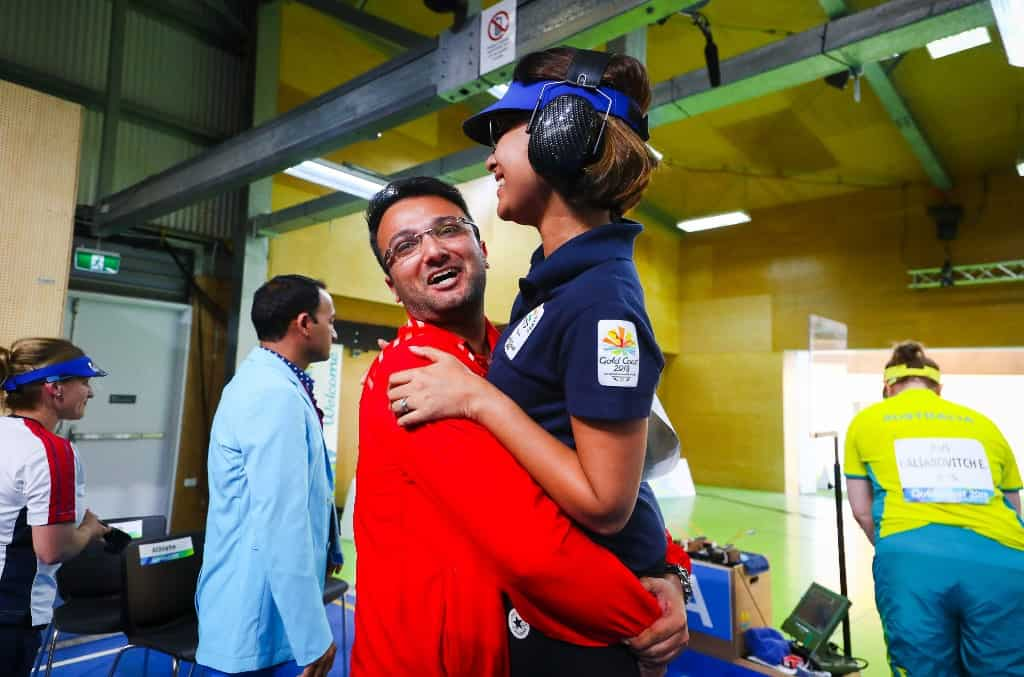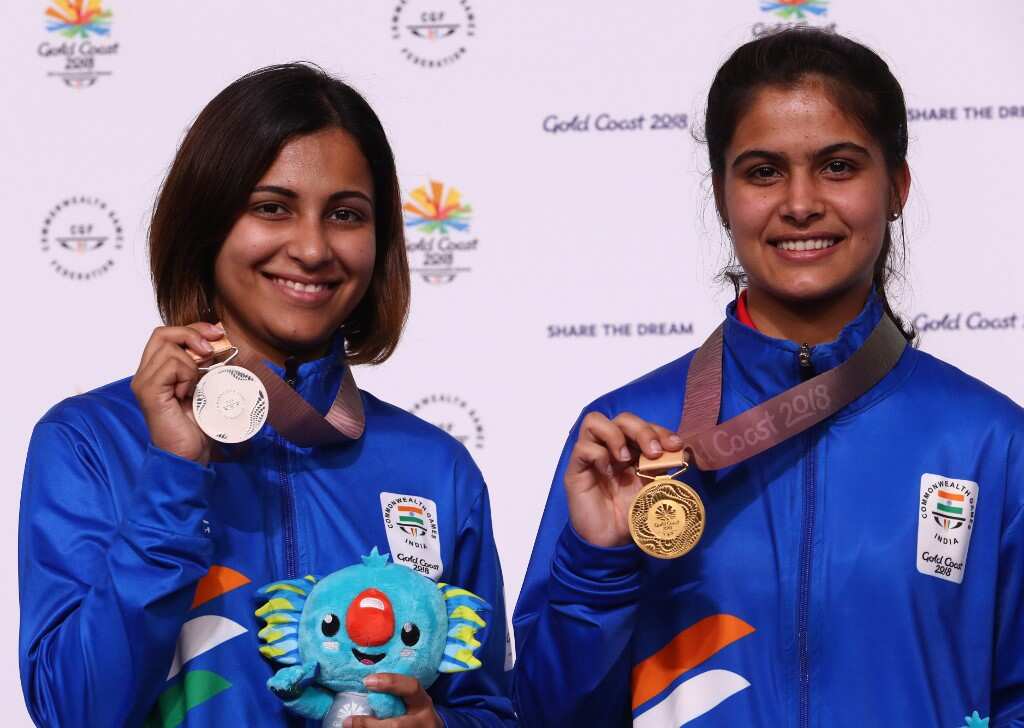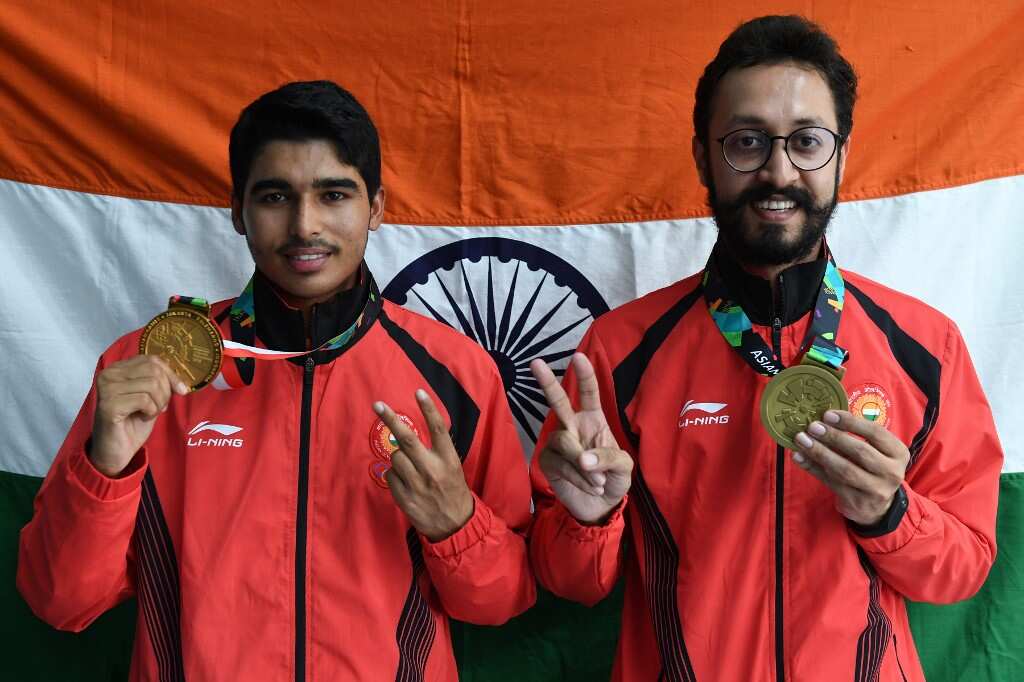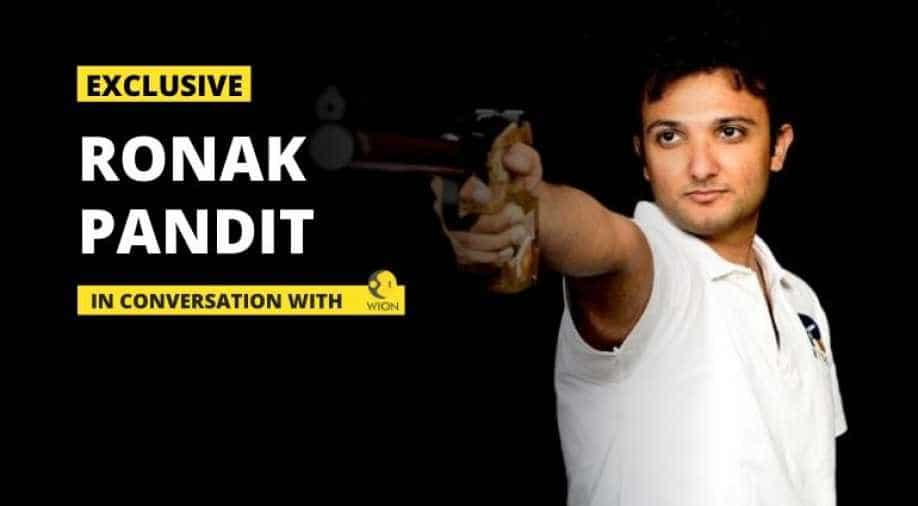Ronak Pandit: Tokyo postponement should not stop planning for 2024 Olympics
Story highlights
Former Commonwealth Games gold medalist and current shooting high-performance manager, Ronak Pandit, in an exclusive interview with WION's Sports Editor, Digvijay Singh Deo, spoke about life in lockdown, SAI's SOPs, how Indian shooters can regain momentum, Tokyo Olympics and roadmap for 2024 Olympics, how shooting can come back to life ahead of 2021 Games and much more.
Former Commonwealth Games gold medalist and current shooting high-performance manager, Ronak Pandit, in an exclusive interview with WION's Sports Editor, Digvijay Singh Deo, spoke about life in lockdown, SAI's SOPs, how Indian shooters can regain momentum, Tokyo Olympics and roadmap for 2024 Olympics, how shooting can come back to life ahead of 2021 Games and much more.
Digvijay Singh Deo: Ronak, how has life in the lockdown been for you in Pune, would have preferred to be at your family home in Mumbai or is this better?
Ronak Pandit: I think the lockdown hasn't been easy for anyone. Fortunately, I got back home to my wife, Heena Sidhu, just two days before the lockdown started. This period has actually been a blessing in disguise because it has given us time to reflect and introspect, which we are otherwise not able to do because of our busy schedules.
trending now
DSD: You have always been a very energetic chap so I am curious to know how you would have reacted to being indoors for such a long period...
Ronak Pandit: I think one of the virtues that shooting teaches us is patience and now is the time to make use of it. Heena and I have been channelling our energy and been putting it to some constructive use. There has been a major change in our schedule as well, we go to sleep by about 9-9:30 pm and wake up at 4:30 am. We have changed our routine and used our time to do something productive. Heena has been training as well, we are working on some technical aspects of her game, which we otherwise wouldn't have had time to address. We keep complaining about the high number of tournaments in the calendar, so now is the time to go back to the drawing board and work on the fundamentals of the sport.

DSD: Now with the SOPs gradually coming out for the resumption of sport you will probably have to coordinate between coaches and shooters to come up with a road-map for Tokyo 2021.
Ronak Pandit: Yes, we've had at least six meetings with the federation, the Sports Authority of India, coaches and players on the road-map for the future. I think this is an unprecedented crisis and there is a lot of uncertainty with regard to the coronavirus. No one really knows when we will be able to return to our normal lives and there is also a possibility of a second wave in the near future. So we have prepared three contingency plans in place and have been coordinating regularly with the various stakeholders of the game. We have also ensured that top shooters have access to the necessary equipment which allows them to set up temporary ranges at home. Hence the shooters will be able to keep in touch with the game on some level and they will find it easier to return to their peak when things open up.
DSD: I'm going to ask you a direct question, is it possible for Indian shooting to regain momentum for the Olympics. We were looking at a possible medal haul of around 3-5 medals had the Olympics been held as per schedule, so how big a hit is this break for Indian shooting?
Ronak Pandit: I think it's a huge setback, not only for Indian shooting but for everyone else in the world. It's like working on a very important presentation on your laptop and suddenly it crashes. Then you have no option but to start from scratch. However I believe that we have dealt with the situation in the best possible way, we are relatively better prepared than most other countries. As Indians, we are used to constantly adapting to the changing circumstances.we have never achieved anything the easy way and that has taught us to always find a solution to the problem. We have been in constant communication with the shooters, so they know what is in the pipeline. We have been conducting weekly training sessions with them and tracking their scores in some of the online competitions. We haven't created a very hectic schedule, as it is also important for them to get some downtime. The tables have completely turned because earlier shooters used to complain about their lack of rest because of the gruelling schedule, but now there is no competition on the cards. It is difficult for shooters to keep their motivation levels high with nothing to work towards, but overall they have dealt well with the crisis.
DSD: Both Manavjit Sandhu and Abhinav Bindra seemed to suggest that it is the more experienced and older athletes who will negotiate this period better. Most of the Indian Olympic quota holders are all first-timers. Is that a big worry and what is the way around it?
Ronak Pandit: I would actually look at it differently. The experienced shooters are used to a certain calendar every year, their body and mind are tuned to that annual schedule which has been built over many years, so this sudden break will affect them to a great extent. Whereas the younger generation, who has been competing internationally for just two years, is untroubled. This break doesn't really matter to them because they just want to compete and win medals at the highest level, whether that be tomorrow or next year. Our young shooters have dominated the sport recently and they are fearless. They are full of energy and just desperate to be at the Olympics. So their enthusiasm is their biggest advantage. Their hunger has not been diminished by this break and they are still headed in the right direction. The theory might suggest that the older ones will deal with this crisis better, but personally I fell the young shooters are better equipped to overcome this roadblock.

DSD: Just from experience Ronak, shooting should be a sport that is easy to resume as it is highly individualised while social distancing is also easy to enforce.
Ronak Pandit: Absolutely, I don't see any major reason not to resume training or competitions anytime soon. Shooters can occupy alternate lanes at ranges and the intervals between relays can be increased so that one batch has enough time to vacate the premises before the next group arrives. The number of participants in an event will have to be reduced and if some other policy tweaks are made, then we should be back competing very soon. There is no contact and no sharing of equipment, so the risk of transmission is minimal in the sport.
DSD: Is it time for tough decisions in your sport. Does the NRAI need to prioritise the Olympic team for the next 6 months and forget about everyone else till a vaccine is found? It's not ideal but you can't have 10,000 people at nationals.
Ronak Pandit: I think we have to be more far-sighted in our planning. We cannot just prepare the 15 shooters for the 2021 Tokyo Olympics and ignore the other shooting talent in the country. The quota places for the next Olympics will be up for grabs just 6 months after the Tokyo Games and we must have a plan that ensures we succeed in the long term and not just at the 2021 games. Obviously we don't need to focus on 10,000 shooters but I also see no reason to only use our resources for the development of 15 shooters. I think we can easily work with about the top 150 shooters at this point. If the lockdown continues into June and July, we have identified shooting ranges which are near to the shooters' respective houses all over the country and made special provisions for them to train. We have also made it possible for the 10-metre event shooters to set up a facility at their houses. If we work with a larger pool of shooters, it will considerably improve our chances of maintaining high levels of performance in the future.
DSD: Will the logistics be the bigger problem now, getting everyone together, interaction with coaches. A big takeaway from Rio debacle was the need to constantly monitor athletes. Does it make sense to organise isolated camps for shooters from different events?
Ronak Pandit: Right now the interaction between the shooters and coaches is limited to online video conferences. Once movement is allowed, we will have to mobilise the shooters at one location for training. We are trying to decide on the venue of these camps because it will also take time for us to figure out the logistics. I don't think it will be possible for us to hold separate camps for different events because the coaches have to supervise shooters at all times, otherwise there is no point of holding the camp. We are hoping to get these camps up and running in early August.
DSD: As someone mandated to keep tabs on high performance, how do you ensure shooters maintain their competitive edge without any competition...
Ronak Pandit: If we are able to start our training camps in August, then I feel we will have enough time to get our shooters ready for the Olympics. At the moment, we are only focussing on the Olympics and not any other competition, so we don't need our shooters to reach their peak in say, December. Once we get back to the camps, the coaches will decide which shooters will begin competition preparation after a certain point of time, it is a long process. It will take time for the players to get back in the zone. I think it will be better for shooters to work on the basics in the first few months, when some minor goal-oriented training can take place. I have no doubt in my mind that if we start training in august, then by December our shooters will be close to their peak.
DSD: Now NRAI had a selection policy in place. But can rankings of 2018 be taken to select a team for an event in 2021? Should there not be a revised policy now?
Ronak Pandit: I think the existing policy got us some great results and we definitely had the best possible team for the original 2020 Olympics. However, after the postponement, we do need to take another look at the criteria to ensure the best team goes to the 2021 games. It is also a moral question, because the 15 shooters that were in line to compete at the 2020 games, had proven themselves at the highest level over the last few years and thoroughly deserved their spot in the team. So in that sense, it is difficult to question their merit. But the fact is that a lot can change in the space of 6 months to a year. We have seen so many shooters excel at major events in a particular year and then suffer a meltdown the next year. I think that the original 15 shooters should be given all the support they need by the NRAI, but the federation should also keep an eye on the performance of the other shooters. That is the suggestion I have given to the NRAI. If those 15 shooters are still the best in January or February 2021, then that should be the final team. At the end of the day, the best shooters should represent India at the Olympics.

DSD: Shooting is in a great position because more than 95 per cent of the Olympic berths have been secured. Considering social distancing and quarantine regulations, should the field be limited at events next year leading up to the Olympics. Maybe 2 member teams per event like we see at the Commonwealth Games.
Ronak Pandit: Absolutely. I believe only those shooters who have qualified for the Olympics should be allowed to participate in the events leading up to the games. There will be some major changes that will need to take place in the 2021 events as well for competitions to take place. We might have to conduct competitions simultaneously in safe zones and ISSF observers could monitor the scores at these events to ensure fair-play. Overall, we must adapt to the circumstances otherwise I see 2021 also being a washout year for shooting.

















